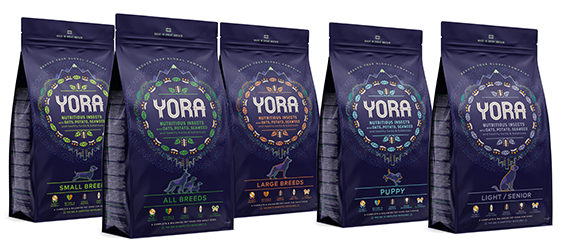
Insect-based dog food manufacturer Yora says the nation’s estimated six million lockdown dogs could create an additional five million tonnes of carbon dioxide every year.
The sustainable food firm’s own survey revealed that 9.4% of Brits got a dog during lockdown, with a third of owners adding that working from home was making them think about getting a second pet.
With 32% of 3,000 owners surveyed admitting to being concerned about their animal’s carbon pawprint, Yora examined the stats around the food consumption of all these new pets.
Its calculations were based on a medium-sized dog eating a popular UK meat-based diet for a year. The company concluded that its insect grub main ingredient made Yora the lowest CO2 producing premium pet food in the world – lower even than leading vegan dog foods.
The Yora range uses insect grubs as an alternative to traditional protein sources such as chicken, beef, turkey and soya. Insect protein is nutritious but insects only need a fraction of the resources to farm.
Dr Pim Martens, professor of sustainable development at Maastricht University, said: “It’s clear from research into ecological pawprints of pet foods that insects offer a more sustainable source of protein for pets than traditional meat-based products.
“Not only are the carbon emissions associated with an insect-based diet lower, the amount of land (and likely water) required to produce foods using insect protein is lower than for foods made from chicken or beef.
“If consumers are worried about the ecological impact of their pet, as these survey results imply, evidence suggests that insect-based diets are a great way to reduce that impact.”


